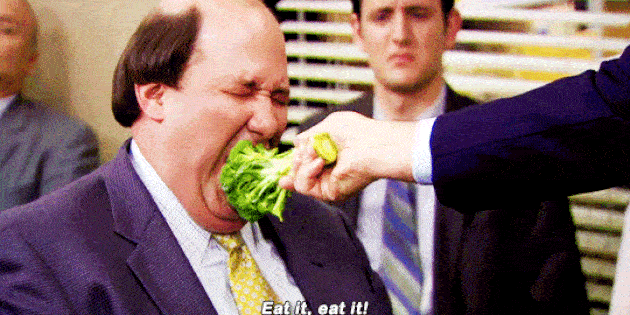1. Calorie is a measure of energy from food
Technically, one calorie is the amount of energy needed to heat one gram of water by 1 ºC. In one kilocalorie (kcal) – 1 000 calories, and speech in this case is not about gram, but about a kilogram.
What does the food have to do with it? The proteins, fats and carbohydrates, of which it consists, contain energy. Just this energy is measured in calories.
2. Calories allow us to survive, create new tissues and give energy for movement
Every time you eat, your body parses incoming energy for a variety of purposes. First of all, it is used to maintain vital functions, such as adjusting breathing and pumping blood.
The necessary minimum of energy for survival is called the basal metabolism index. Its value for adult women with a normal weight is about 1 330 kcal, for adult men with a normal weight – about 1,680 kcalHuman energy requirements .
The remaining calories and nutrients go to the construction and restoration of tissues. That’s why with burns prescribed a high-calorie diet. To create muscle mass, too, energy is required: the new tissue will not build itself.

Any additional calories are consumed during physical activity. And any movement is considered. But if you do not burn the residue, it will be stored as fat.
We are used to treating fat as an enemy, although in reality it is our strategic supply of energy in case of an emergency. True, its overabundance damages the body, increasing the risk of developing diabetes and other diseases.
Finally, there is also digestion: 10-15% of the incoming calories are spent on this process.
3. Your body may not require 2,000 kcal per day
Two thousand kilocalories is an average. Individual energy needs depend on age, sex, weight, activity level and goal: to lose weight, recover, stay in the same form. To find out your rate, use this calculator.
4. The number and quality of calories are equally important
Lose weight can also be on sweets, if there are few of them, as one American professorTwinkie diet helps nutrition professor lose 27 pounds . But the number of calories is only one side of the coin. The nutrients contained in food also have significance.
Suppose you decide to have a snack. Low-fat biscuits, in which only 100 kcal, is not the best choice, because it has few nutrients and a lot of sugar. More benefit will be brought peanut butter from 190 kcal: it has less sugar, more protein and vitamins.
5. There is no product with negative calorie content

There is an opinion that some fruits and vegetables are so low-calorie that their digestion requires more energy than they can give. False. As already mentioned, the body spends 10-15% of the incoming calories for food processing. So all the rest, albeit in a small amount, remain with you.
6. Calories from carbohydrates are not universal evil
Some diets are built on a limited intake of carbohydrates. But the weight increases not because of them, but because of the excess of calories. So you can type extra pounds on the chicken breast, if you absorb it without measure.
In general, carbohydrates to carbohydrates are different. Harmful like candy and soda deprived of nutrients. Useful, such as whole grains and fruits, on the contrary, are rich in nutrients and fiber.
7. Rule 3 500 kcal is not true
In nutrition, the statement is widely spread that 3,500 kcal are equal to 0.5 kg (that is, if you consume 500 kcal less during a week, you will lose half a kilogram). Such figures first appeared in 1958, but now they are already outdatedFarewell to the 3,500-Calorie Rule .
The bottom line is that weight loss is individual and depends on metabolism and other factors. So 3,500 kcal, as well as the consumption rate, can be considered only an approximate average.
8. Calorie count does not work for everyone
Obsession with calories can damage your health. Say, in the event that you prefer to take pretzels instead of almonds just because of their lower calorie content.
On the other hand, keeping track of calories actually helps to maintain a normal weight. True, not all.
In general, the advice is simple: if you live with a calculator better and better, continue; if not, then stop harassing yourself.
